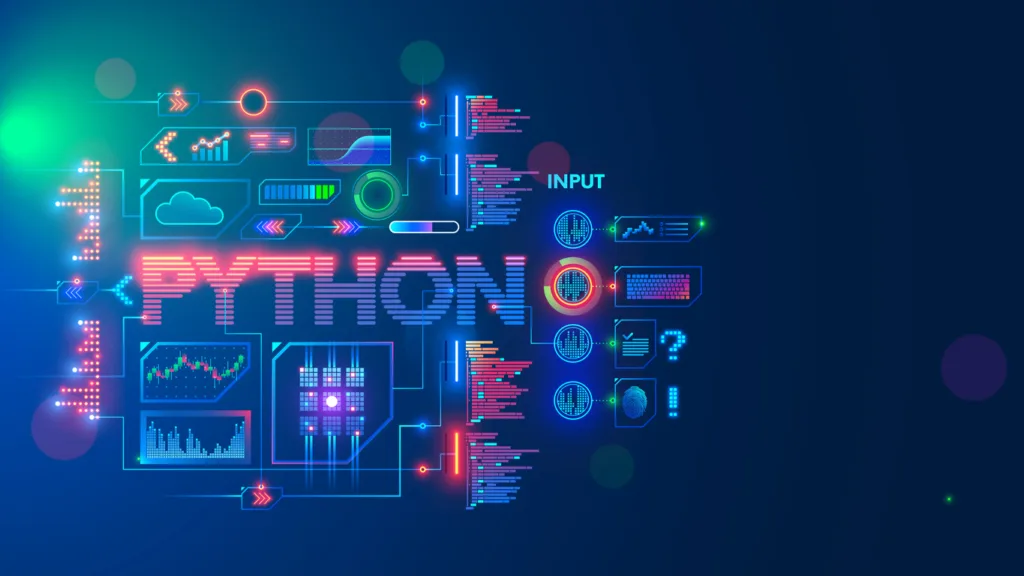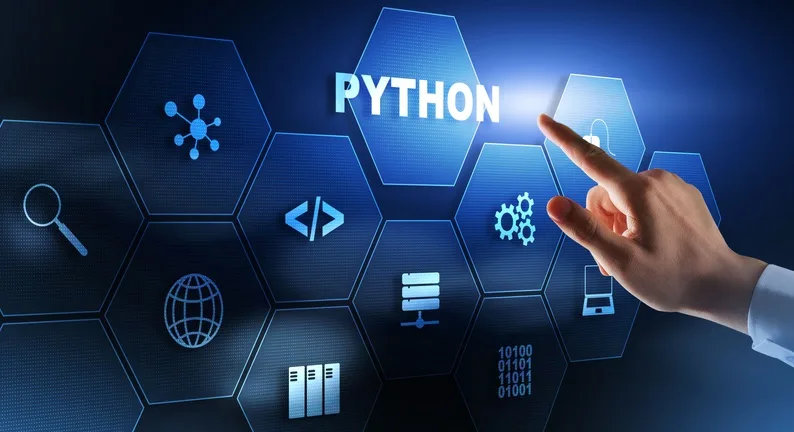This is the best latest updated complete Python Programming course, which is designed for basic to advance level, and easy to understand for everyone. This is a paid course but you download here free of cost and explore your programming skills as a next level. And this course help to you getting a growing career & best earning opportunity in your life.
Focused Keywords
–> Overview of Python Programming Language.
–> Future Scope of Python Programming.
–> Advantages of Python Programming.
–> Content of Python Programming Course.
–> Download Section.
Overview of Python Programming Language:-
Python is a popular, high-level programming language known for its clear syntax, readability, and versatility. It was first released in 1991 by Guido van Rossum, and since then it has become one of the most widely used programming languages in the world.
Python is used in a variety of applications, including web development, scientific computing, data analysis, artificial intelligence, and more. It is often used as a scripting language, allowing developers to quickly prototype and test ideas without having to write a lot of code.
One of the key features of Python is its large standard library, which provides a wealth of modules for tasks such as connecting to web servers, reading and writing files, and working with data. The standard library is one of the reasons why Python is so versatile and widely used.
Another advantage of Python is its dynamically typed variables. This means that the type of a variable can change during runtime, making it easy to write flexible code that can adapt to changing conditions. This feature makes Python a great choice for working with data, where the structure of the data can be unknown or subject to change.

Python is also an interpreted language, which means that the code is executed line-by-line at runtime, rather than being compiled into machine code ahead of time.
This makes it easier to debug and test code, and it also makes Python a good choice for scientific computing and data analysis, where the focus is often on exploring data and discovering insights, rather than optimizing code for performance.
In addition to its standard library and dynamically typed variables, Python is also known for its simplicity and ease of use. Its syntax is clean and concise, making it easy for new programmers to learn, and it has a large and active community that provides support and resources for users.
In conclusion, Python is a versatile and widely used programming language that is well suited to a variety of applications. Its large standard library, dynamically typed variables, and ease of use make it a great choice for tasks such as web development, scientific computing, data analysis, and more. Whether you’re a seasoned programmer or just starting out, Python is a great language to learn and use.

Future Scope of Python Programming:-
1. Artificial Intelligence and Machine Learning: Python will continue to play a significant role in the field of AI and ML, as it is the preferred language for many leading AI libraries and frameworks, such as TensorFlow, PyTorch, and scikit-learn.
2. Web Development: With the growing popularity of Python frameworks such as Django and Flask, Python is becoming increasingly important for web development. Its versatility and ease of use make it a great choice for building complex web applications.
3. Data Science and Analytics: Python has a strong presence in the field of data science, with libraries such as pandas and numpy that make it easier to work with and analyze large datasets.
4. Internet of Things (IoT): Python is well-suited for developing IoT applications, due to its simplicity and versatility. It can be used to build both the hardware and software components of IoT systems.
5. Scientific Computing: Python is widely used for scientific computing and simulations, due to its support for numerical and scientific computing libraries, such as NumPy and SciPy.
6. Game Development: Python is becoming increasingly popular for game development, as it can be used to build games using libraries such as Pygame and Kivy.
7. Automation: Python can be used to automate repetitive tasks, making it a great choice for businesses and organizations looking to streamline their processes.
8. Financial Services: Python is being increasingly adopted in the financial services sector, due to its support for data analysis, machine learning, and other critical tasks.
9. Education: Python is a great language for teaching computer science, as its simple syntax and ease of use make it accessible to students at all levels.
10. Cloud Computing: Python is becoming an important language for cloud computing, as it can be used to build and manage cloud-based applications, as well as for data analysis in the cloud.
Advantages of Python Programming:-
1. Easy to Learn: Python has a simple and intuitive syntax, making it an ideal choice for beginners. Its readability makes it easy to learn and understand, even for those with little to no programming experience.
2. Versatile: Python can be used for a wide range of applications, including web development, scientific computing, data analysis, machine learning, and more.
3. Large Community: Python has a large and active community, providing support and resources for users, as well as contributing to the development and maintenance of the language.
4. Strong Library Support: Python has a large standard library, which provides modules for tasks such as connecting to web servers, reading and writing files, and working with data.
5. High Demand: Python is one of the most in-demand programming languages, and its popularity is growing, making it a valuable skill to have in the job market.
6. Dynamically Typed: Python allows for dynamically typed variables, making it easy to write flexible code that can adapt to changing conditions.
7. Interactive: Python’s interactive mode allows for quick prototyping and testing of code, making it a great choice for scientific computing and data analysis.
8. Interpreted: Python is an interpreted language, meaning the code is executed line by line at runtime, making it easier to debug and test code.
9. Good for Prototyping: Python’s ease of use and quick development cycle make it a great choice for prototyping, allowing developers to quickly test and refine ideas.
10. Suitable for Automation: Python can be used to automate repetitive tasks, making it a valuable tool for businesses and organizations looking to streamline their processes.
In conclusion, learning Python offers a wide range of advantages, from its ease of use and versatility to its strong library support and high demand in the job market. Whether you’re a beginner or an experienced programmer, learning Python can help you develop new skills and expand your career opportunities.
Content of Python Programming Course:-
The following topics learn on in this course:-
Introduction to Python
Introduction to programming and Python
Setting up the development environment
Basic syntax and data types
Operators and expressions
Input and Output in Python
Control Structures
Conditional statements (if, if-else, if-elif-else)
Loops (for, while)
Break, continue and pass statements
Functions and Modules
Defining and calling functions
Function arguments and return values
Modules and packages
The import statement
Built-in functions and modules
Strings and Lists
String operations and manipulations
Lists and list operations
List comprehensions
Tuples, sets, and dictionaries
File I/O
Reading and writing files
File modes (read, write, append)
The with statement
Exception Handling
Exceptions and Exception handling
try-except-finally
Raising exceptions
Object-Oriented Programming
Classes and objects
Constructors and destructors
Class and instance variables
Method overloading and method overriding
Inheritance and polymorphism
Advanced Topics
Regular expressions
The lambda function
Decorators
Generators and Iterators
Context Managers
Working with Data
The Pandas library
Dataframes and Series
Reading and writing data
Data manipulation and aggregation